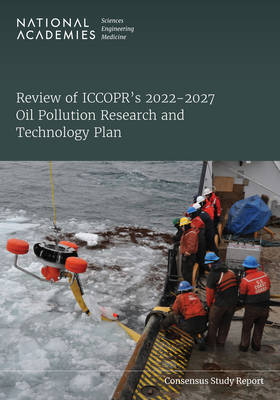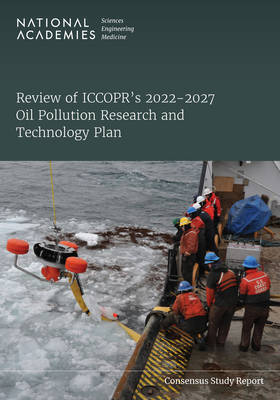
- Retrait gratuit dans votre magasin Club
- 7.000.000 titres dans notre catalogue
- Payer en toute sécurité
- Toujours un magasin près de chez vous
- Retrait gratuit dans votre magasin Club
- 7.000.0000 titres dans notre catalogue
- Payer en toute sécurité
- Toujours un magasin près de chez vous
Review of Iccopr's 2022-2027 Oil Pollution Research and Technology Plan
National Academies of Sciences Engineering and Medicine, Division on Earth and Life Studies, Ocean Studies Board, Committee to Review the Interagency Coordinating Committee on OiDescription
After the Exxon Valdez oil spill in 1989, advancing oil pollution research and technology to limit the environmental impacts of oil spills became a national and international priority. Congress responded by enacting the Oil Pollution Act of 1990 and forming the Interagency Coordinating Committee on Oil Pollution Research (ICCOPR) to coordinate research for preventing, planning for, responding to, and mitigating the effects of oil pollution on the environment. To achieve this end, ICCOPR published the oil pollution research and technology plan to guide research and funding priorities in 1992, with updates released over the years, most recently, the 2022-2027 Research and Technology Plan.
This new report provides advice and guidance on the approach, structure, adequacy, and implementation of ICCOPR 2022-2027 Research and Technology Plan. Coordinated research efforts are necessary so knowledge and capacity related to oil spill prevention, preparedness, response, mitigation, and restoration can be advanced. Future updates of the plan should utilize a more streamlined, transparent, and community-driven development process including development of an oil pollution research dashboard and inclusion of metrics to assess and communicate progress on oil pollution research priorities. ICCOPR should also initiate processes to allow for open-water field trials when appropriate. The report recommendations were developed to assist ICCOPR with developing a Research and Technology Plan that can be widely used to promote progress, coordination, and collaboration on priority oil pollution research needs within the United States and globally - research needs that are important for improving knowledge, capacity, and regulations to safeguard the environment.
Spécifications
Parties prenantes
- Auteur(s) :
- Editeur:
Contenu
- Nombre de pages :
- 66
- Langue:
- Anglais
Caractéristiques
- EAN:
- 9780309696005
- Date de parution :
- 07-05-23
- Format:
- Livre broché
- Format numérique:
- Trade paperback (VS)
- Dimensions :
- 178 mm x 254 mm

Les avis
Nous publions uniquement les avis qui respectent les conditions requises. Consultez nos conditions pour les avis.






